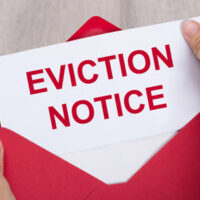Can A Condo Board Ever Evict An Owner?

Condominium boards and other community associations have quite a lot of power in Florida, including taking actions against owners who violate the community bylaws. However, it is quite rare that a board would actually arrive at a situation where eviction would be on the proverbial table. It can happen, in the most extreme cases, that an owner would be forced out, but a far more common situation is if a board must evict a tenant. If you own or rent a condo governed by a board, it is important that you understand your position, either as an owner or a tenant.
Evicting Tenants
Any condo board in Florida must have governing documents, which lay out the rules and regulations that each tenant or owner must abide by if they choose to live in their condominium. It is important to note that tenants are bound by the rules and regulations even if their lease with the condo owner does not specifically articulate this – the overall peace and tranquility of the condo building or buildings takes precedence over the tenant’s ability to do as they please.
If tenants violate the condo board’s bylaws, they can be evicted much more easily than an owner can – but it is important to keep in mind that only an owner may evict a tenant, because of a concept called contractual privity. What this means is that the tenant’s agreement to live in the condo did not involve the condo board; rather, it was made with the owner. Thus, the board has no power to affect an agreement to which they were not a party. However, the association can force the owner to evict their tenant by bringing an action against them in court.
Evicting Owners
While Florida law offers several different ways to have a tenant evicted, forcing an owner out is much more difficult. Technically, there is no real way to simply ‘evict’ an owner; rather, an owner can only be forced out via foreclosure. For example, if an owner refuses to pay association dues, the condo board can impose fines and take other actions; if the owner persists in refusing, the association then has the right to impose a lien on the condominium. Florida law holds that an association can make a demand for rent to satisfy any monetary obligation due to the association, and if this is ignored, the board may initiate foreclosure proceedings.
In general, if you fear eviction as a tenant or an owner, the first place you should investigate is your condo association’s governing documents, but contacting an experienced attorney to help you understand your options is still a good idea. If you genuinely have a good-faith dispute with your condo board, but fear action being taken against you, an attorney can help ensure you get your chance to be heard.
Call A Tampa Eviction Attorney
The threat of eviction is intimidating for everyone, but at the same time, a community association has the right to enforce their residents’ right to quiet enjoyment. If you have questions or concerns about possible eviction proceedings, a Tampa eviction attorney from the Seward Law Office can help get those managed. Attorney Alicia Seward is well versed in this area of law, and is ready to try and assist you. Contact our offices today to schedule a consultation.
Resources:
flsenate.gov/Laws/Statutes/2016/0718.116
leg.state.fl.us/statutes/index.cfm?App_mode=Display_Statute&Search_String=&URL=0700-0799/0718/Sections/0718.303.html
